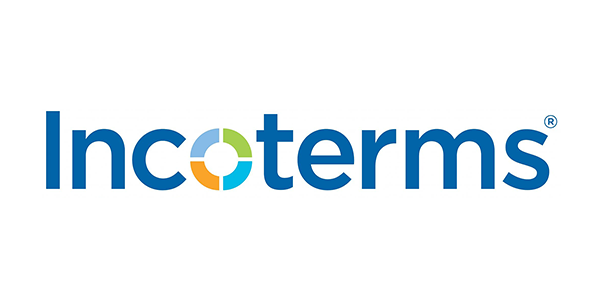Need help with the complex international trade regulations?
Incoterm rules help clarify buyers and sellers responsibilities.
Enter your shipment number.
Incoterms rules guide international business leaders and clarify each party’s responsibilities during a supply chain transaction.
13 November 2019
The International Chamber of Commerce (ICC) created Incoterms rules to serve as the world’s essential terms of trade during the sale of goods. Incoterms is an acronym standing for “international commercial terms,” and it is an ICC-registered trademark in several countries.
Unlike national trade policies, Incoterms rules are universal and intended to provide clarity and predictability to international business leaders. Incoterms can guide you in different situations: whether you are filing a purchase order, packaging and labeling a shipment for freight transport, or preparing a certificate of origin at a port.
Correctly applying Incoterms® in contracts and documentation eases trade flow, assigns costs more accurately, and clearly manages risks. Although trade can occur without referencing Incoterms®, most businesses find them crucial in creating smooth international transactions.

After World War I, growth in cross-border trade exposed different practices and legal interpretations between traders from different countries. These inconsistencies showed the need for a common set of rules. Merchants initiated the concept of standard trade terms in 1923, and the International Chamber of Commerce (ICC) established Incoterms® in 1936.
Incoterms® created country-neutral rules to address concerns about the responsibility of carriage, cost, risk, and to prevent misunderstandings, disputes, and litigation. Incoterms 2020 is the latest set of rules, but they have been refined repeatedly, with amendments and additions made in 1953, 1967, 1976, 1980, 1990, 2000, 2010, and 2020.
A detailed history is published on the ICC’s website.
The ICC is the institutional representative of 45+ million companies in 100+ countries. ICC’s core mission is to make business work for everyone, every day, everywhere. The group provides dispute resolution services and advocates for international trade, responsible business conduct, and a global approach to regulation.
Incoterms® are referenced as a three-character acronym and accompany the stated geographic place. These rules don’t supersede any laws, nor are they all-inclusive. The rules are ordered to outline the general obligations, delivery, risk transfer, carriage, insurance, documentation, import/export clearance, packing and marking, costs and notices specific to each party. Incoterms® rules have four main categories, all following the same format and acting as a guide during discrete tasks:
Always apply the appropriate Incoterms® version, following this standard formatting for clarity:
[Incoterms®], [Named port, place, or point], [Incoterms® version]
Using previous versions of Incoterms®, like Incoterms® 2010, is permissible but could cause confusion if the version is not properly referenced in the contracts and documentation. To find a complete list of responsibilities for each term, refer to the official ICC Incoterms® 2020 book or download the Incoterms® mobile app.

The ICC’s latest version, Incoterms® 2020, went into effect 1 January 2020.
Delivered at Terminal (DAT) has been changed to Deliver at Place Unloaded (DPU)
Free Carrier (FCA) added clarity and instructions regarding letters of credit.
Cost Insurance and Freight (CIF) and Carriage and Insurance Paid to (CIP) outline different levels of insurance coverage.
Free Carrier (FCA), Delivery at Place (DAP), Delivery at Place Unloaded (DPU), and Delivered Duty Paid (DDP) include arrangements for carriage with own means of transport.
FCA, DAP, DPU, and DDP recognize sellers who may use their own transport to deliver goods and expressly state that sellers can make a contract for carriage or simply arrange for the necessary transportation.
This page is for informational purposes only. The Incoterms® Rules are protected by copyright and owned by the ICC. Further information on the Incoterm® Rules may be obtained from the ICC website. Incoterms® and the Incoterms® 2020 logo are trademarks of ICC. Use of these trademarks does not imply an association with, approval of, or sponsorship by ICC unless specifically stated.
Incoterm rules help clarify buyers and sellers responsibilities.